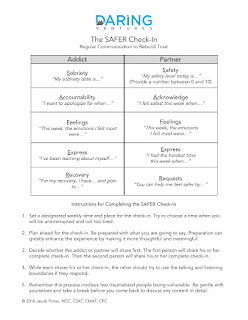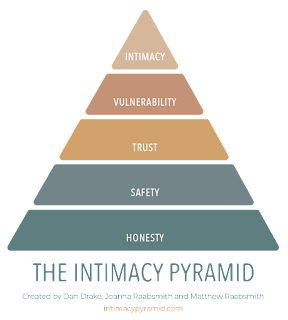I'm Going to Talk to My Husband Tonight...
The day I found out about my husband's pornography addiction, I had waddled my very pregnant body into the bedroom and tried to pull up a recipe I had previously found on the internet. I clicked "Recent Files," and the pictures I saw those 18 years ago have permanent residence in my brain. And so it was that I first began saying, "I'm going to talk to my husband tonight."
I did talk with him, but, despite how clear those awful pictures are in my mind, the only thing I remember about our talk is that he took a picture of me as I was walking up and told me how beautiful I was. It's strange to have photographic evidence of almost the moment I became someone else.
We eventually moved to work with a church in another state, and a precious woman sat over coffee with me one day and told me about her husband's struggle with pornography. I realized I hadn't brought up the issue in a while, and fear swept through my body. On the ride home I decided, "I'm going to talk to my husband tonight."
Fast forward to our jump across the puddle to Thailand and getting a notification on our filter that my husband was viewing pornography while I was in a Thai hospital with our critically ill newborn. "I'm going to talk with him tonight."
Time and time again for over a decade I repeated this cycle, subconsciously creating a mantra that I came to live by. "I'm going to talk to him tonight" somehow came to make me feel like I had some sort of control over the situation, that I could make this whole thing better.
Talking to him meant he would listen with empathy except his shame had robbed him of the ability to understand the heartache.
Talking to him meant I would be able to get the information about his acting out that I needed except he always told half truths, if any truth at all.
Talking to him meant he would promise to do better and take real steps to recovery except his efforts never lasted more than a few weeks.
Talking to him meant we could work through this together except he gaslighted me, minimizing and table-turning until I started apologizing for even bringing up the issue.
Talking to him meant I could lay out my boundaries and ultimatums except that ended up making him angry and condescending. Sometimes he would pout and give me the silent treatment.
If you are in a relationship with an addict, talking to him cannot bring about the results you are hoping for. He has too much pain and shame and way too many walls built up over time to be able to bridge them in a conversation. Oh, but the desire to have that talk is amazingly strong, and it makes so much sense!
So what can I do instead?
- Talk to your coach or Certified Sex Addiction Therapist (find one on APSATS or schedule a free consultation with me).
- Talk to your support group (Join one of our support groups) or reach out to hear from women who have been through this.
Make a plan with your support team who can help you objectively understand what you are facing and then help you decide how to address issues with your spouse (Spoiler Alert: Healthy boundaries are the answer!). Don't face this alone. Those conversations waiting on you "tonight" can set you up for so much pain. Break the cycle. Take steps that are going to lead to healing for you, and maybe for your spouse. An addict whose wife receives appropriate help has a greater chance of healing. That isn't because she is causing his addiction nor is her pain or questions hindering his recovery. Her living in supported reality instead of in his addicted perception of the world is the jackhammer to his denial. Every time he comes up against it, he has to face his demons. And that's a good thing for both of you!
And don't forget, when recovery is set in motion, you can have all the conversations your heart has desired.




Comments
Post a Comment